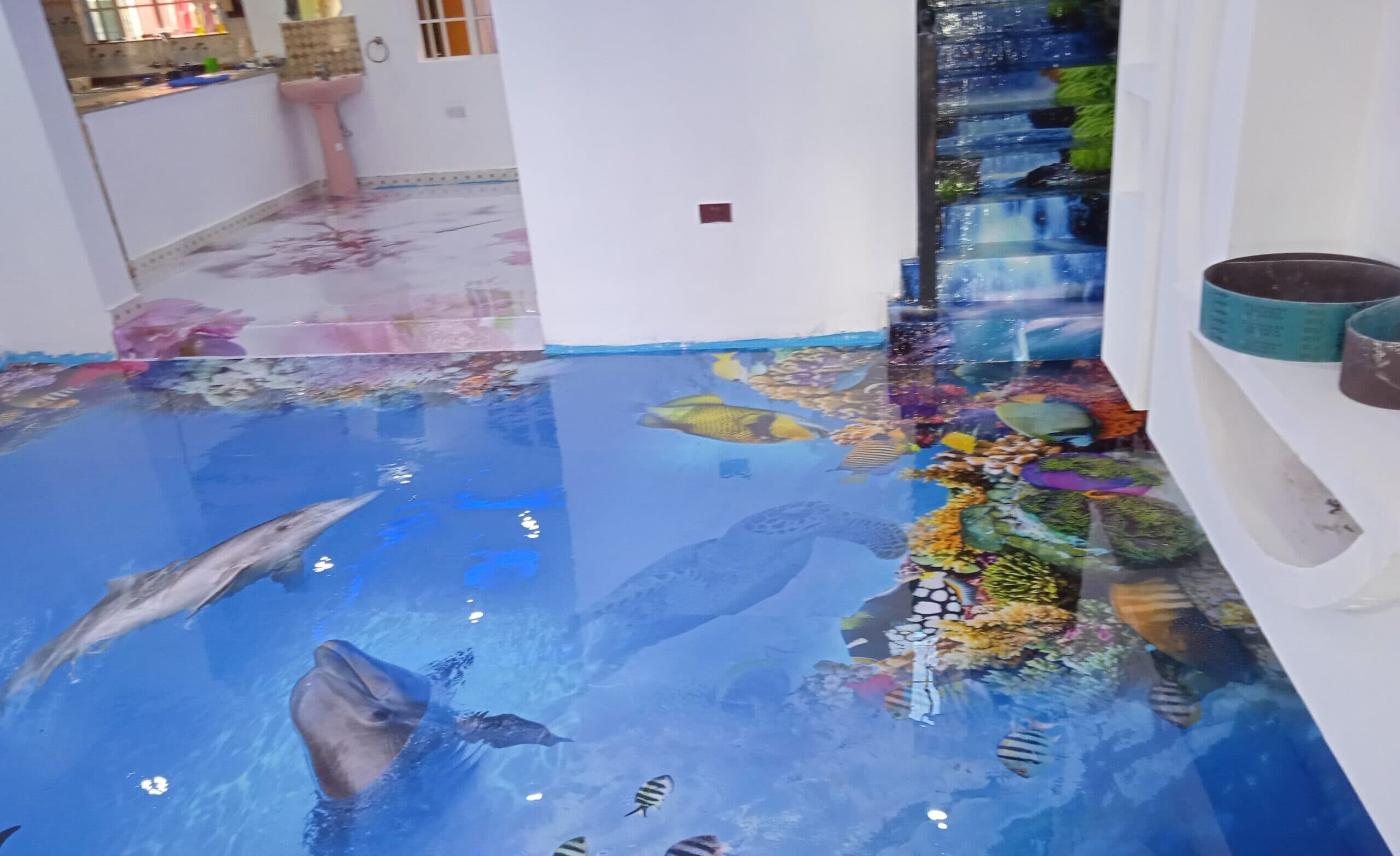We're loading the full news article for you. This includes the article content, images, author information, and related articles.
Once a niche product, epoxy flooring is increasingly being adopted across Kenyan homes, businesses, and industrial facilities due to its durability, aesthetic versatility, and ease of maintenance, offering a modern alternative to traditional flooring options.

Nairobi, Kenya – For years, ceramic tiles have dominated Kenya's flooring market, favoured for their affordability and widespread availability. However, a robust and versatile alternative, epoxy flooring, is steadily gaining acceptance, moving beyond industrial applications into commercial and residential spaces across the country. This shift signals a growing appreciation for its long-term benefits, despite a higher initial investment.
Epoxy flooring is a two-part resin system comprising a base and a hardener. These components are mixed with a filler to achieve the desired thickness, typically ranging from 1mm to 6mm. Once poured, the self-levelling mixture is spread using a special rake and a spike roller to remove air bubbles, resulting in a seamless, hard-wearing surface. This process creates a rigid, plastic-like material that bonds securely to the underlying concrete.
While traditional flooring like ceramic tiles has been a staple in Kenyan construction, the evolving needs of modern infrastructure and a growing awareness of advanced building materials are driving the adoption of solutions like epoxy. The industrial and commercial sectors were early adopters, seeking floors that could withstand heavy traffic and chemical exposure. Now, homeowners are also exploring epoxy for its aesthetic appeal and low maintenance.
In sectors such as food processing and healthcare, stringent hygiene and safety regulations are paramount. Epoxy flooring's seamless, non-porous, and chemical-resistant properties make it an ideal choice for compliance with standards like Hazard Analysis Critical Control Point (HACCP) International. These regulations, enforced by agencies and governments in Kenya, mandate conditions in facilities that process foods and beverages, driving the demand for flooring solutions that support efficient cleaning and overall facility hygiene.
Rodgers Otieno, a Sales Executive at Solcrete Contractors, a company actively promoting epoxy flooring in Kenya, highlights its superior durability, safety, and low maintenance compared to tiles. Companies like Ideal Floor Systems E.A Ltd, StruChem Africa, Bettercoat Company Ltd, Phemat Solutions Ltd, and Flexo Concepts Limited are among the key players supplying and installing epoxy flooring solutions across Kenya and East Africa.
Despite its numerous advantages, epoxy flooring presents certain considerations. Installation is a labour-intensive process requiring skilled craftsmanship and proper surface preparation to ensure effectiveness and longevity. Improper preparation, such as failing to remove oils and grease, can reduce the epoxy's effectiveness. Additionally, epoxy floors can be slippery when wet, although anti-slip additives can mitigate this risk. Some epoxy types may also be susceptible to discoloration and fading when exposed to UV light, necessitating UV-resistant sealants for outdoor or sun-exposed areas.
While the benefits are clear, the long-term environmental impact of epoxy resin production and disposal in Kenya is an area that requires further examination. Additionally, while low-VOC (Volatile Organic Compound) options are available, traditional epoxy can emit harmful fumes during installation and curing, posing health risks without adequate ventilation.
The installation of epoxy flooring can take up to three days, depending on temperature and humidity, with ordinary epoxy taking 24-48 hours to harden sufficiently for use. Full hardening and scratch resistance take longer. The Kenyan epoxy resin market is expected to experience steady growth in the coming years, driven by increasing demand from construction, automotive, electronics, and aerospace industries.
The Kenyan market should watch for continued innovation in epoxy formulations, particularly the development of more sustainable and eco-friendly solutions. The expansion of distribution networks and increased awareness campaigns by suppliers will also be crucial in further popularising epoxy flooring among a wider range of consumers. As infrastructure development continues across Kenya, the demand for durable and high-performance flooring solutions is expected to rise.
Keep the conversation in one place—threads here stay linked to the story and in the forums.
Sign in to start a discussion
Start a conversation about this story and keep it linked here.
Other hot threads
E-sports and Gaming Community in Kenya
Active 9 months ago
The Role of Technology in Modern Agriculture (AgriTech)
Active 9 months ago
Popular Recreational Activities Across Counties
Active 9 months ago
Investing in Youth Sports Development Programs
Active 9 months ago